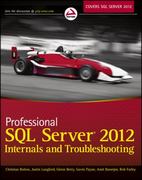Question
The MPI program 'Standard-Deviation.c' computes the standard deviation for an array of elements.. Here, we assume that the maximum number of elements in the array
The MPI program 'Standard-Deviation.c' computes the standard deviation for an array of elements.. Here, we assume that the maximum number of elements in the array is 10. Some necessary error checkings are performed to ensure that the number of inputs is correct and their values are valid. Please run the program using each of the following commands and submit your screenshots for the outputs.
(a) mpiexec -n 2 ./Stddev (b) mpiexec -n 2 ./Stddev 0 (c) mpiexec -n 3 ./Stddev 7
(d) mpiexec -n 3 ./Stddev 9 (e) mpiexec -n 4 ./Stddev 21
#include
int *Random_Num_Generator(int Num_Elements);
int Compute_Sum(int *array, int num_elements);
int main(int argc, char** argv) { int comm_sz, my_rank; int i, Product; double local_start, local_finish, local_elapsed, elapsed;
//Seed the random number generator to get different results each time srand(time(NULL)); MPI_Init(&argc, &argv);
MPI_Comm_rank(MPI_COMM_WORLD, &my_rank); MPI_Comm_size(MPI_COMM_WORLD, &comm_sz);
//The error checking here should be performed to ensure that the number of arguments is 2. Otherwise, the usage is printed. if (argc != 2) { if (my_rank == 0)
fprintf(stderr, "USAGE: mpiexec -n
MPI_Finalize();
return 0; }
int Num_Elements = atoi(argv[1]); //The error checking here is performed to ensure that the size of vector is an integer in the range between 1 and 10. if (Num_Elements < 1 || Num_Elements > 10) { if (my_rank == 0)
fprintf(stderr, "Error: The size of the vector should be an integer in the range between 1 and 10! ");
MPI_Finalize();
return 0; } // The error checking here is performed to ensure that the number of elements are evenly divisible by the number of the processes if (Num_Elements % comm_sz != 0) { if (my_rank == 0)
fprintf(stderr, "Error: The size of the vector should be evenly divisible by the number of Processes! ");
MPI_Finalize();
return 0; }
// Generate a random array of elements on process 0 int *Random_Nums = NULL;
if (my_rank == 0) { Random_Nums = Random_Num_Generator(Num_Elements);
printf(" The random numbers generated: ");
for (i = 0; i < Num_Elements; i++)
printf("%d ", Random_Nums[i]);
printf(" "); }
// Compute number of random intergers on each process int Num_Per_Proc = Num_Elements / comm_sz;
// Generate a buffer for holding a subset of the entire array int *Sub_Random_Nums = (int *)malloc(sizeof(int) * Num_Per_Proc);
// Scatter the random integer numbers from process 0 to all processes MPI_Scatter(Random_Nums, Num_Per_Proc, MPI_INT, Sub_Random_Nums, Num_Per_Proc, MPI_INT, 0, MPI_COMM_WORLD);
/////////////////////////////////////////////////////////////////////////////////////////////////////////////// // // Start point for code to be timed // ///////////////////////////////////////////////////////////////////////////////////////////////////////////////
MPI_Barrier(MPI_COMM_WORLD);
local_start = MPI_Wtime(); // Compute the sum of the subset array on each process int Sub_Sum = Compute_Sum(Sub_Random_Nums, Num_Per_Proc);
// Compute the sum of the entire array and distribute it to each process int Total_Sum;
MPI_Allreduce(&Sub_Sum, &Total_Sum, 1, MPI_INT, MPI_SUM, MPI_COMM_WORLD);
// Compute the average of the entire array on each process float Average = (float) Total_Sum / Num_Elements;
// Compute the partial sum of the squared differences from the average on each process float Sub_Square_diff = 0;
for (i = 0; i < Num_Per_Proc; i++) Sub_Square_diff += (Sub_Random_Nums[i] - Average) * (Sub_Random_Nums[i] - Average);
// Reduce the total sum of the squared differences to the process 0 (root process) float Total_Square_diff;
MPI_Reduce(&Sub_Square_diff, &Total_Square_diff, 1, MPI_FLOAT, MPI_SUM, 0, MPI_COMM_WORLD);
// Compute the standard deviation if (my_rank == 0) { // The standard deviation is the square root of the averaged total sum of squared differences float Standard_Deviation = sqrt(Total_Square_diff / Num_Elements);
printf("Standard deviation = %f ", Standard_Deviation); }
local_finish = MPI_Wtime(); local_elapsed = local_finish - local_start;
MPI_Reduce(&local_elapsed, &elapsed, 1, MPI_DOUBLE, MPI_MAX, 0, MPI_COMM_WORLD);
if (my_rank == 0)
printf("Elapsed time = %e seconds ", elapsed);
/////////////////////////////////////////////////////////////////////////////////////////////////////////////// // // End point for Code to be timed // ///////////////////////////////////////////////////////////////////////////////////////////////////////////////
// Clean up if (my_rank == 0) free(Random_Nums); free(Sub_Random_Nums); MPI_Barrier(MPI_COMM_WORLD); MPI_Finalize();
return 0; }
// Create an array of random integer numbers ranging from 1 to 10 int *Random_Num_Generator(int Num_Elements) { int *Rand_Nums = (int *)malloc(sizeof(int) * Num_Elements); int i;
for (i = 0; i < Num_Elements; i++) Rand_Nums[i] = (rand() % 10) + 1;
return Rand_Nums; }
// Computes the sum of an array of numbers int Compute_Sum(int *array, int num_elements) { int sum = 0; int i; for (i = 0; i < num_elements; i++) sum += array[i];
return sum; }
Step by Step Solution
There are 3 Steps involved in it
Step: 1

Get Instant Access to Expert-Tailored Solutions
See step-by-step solutions with expert insights and AI powered tools for academic success
Step: 2

Step: 3

Ace Your Homework with AI
Get the answers you need in no time with our AI-driven, step-by-step assistance
Get Started


